Top 5 Fastest Programming Language to Learn
Once upon a sunrise
It was a bright Tuesday morning when Hao Chen, clutching his favorite mug of green tea, stared at the blank document on his laptop. He had always admired developers who could conjure entire applications out of thin air. That day, he decided to embark on his own journey into the world of code. But a question echoed in his mind: Which language would let him see results quickly and keep him motivated? Join Hao Chen as he discovers the top five fastest programming languages to learn and finds his spark in the digital universe.
Read More: The Best Tech Jobs for 2030
Why Speed Matters in Learning to Code
In today’s fast-paced digital landscape, seeing early progress can fuel motivation and confidence. Learning a language with gentle syntax and immediate feedback helps beginners celebrate small victories. If you choose wisely, you can build web pages, scripts, or even simple games within days. This article will guide you through the fastest programming languages to learn, helping you pick one that aligns with your learning style and goals.
1. Python: The Gentle Giant
Python stands out for its clear and concise syntax. You write almost plain English, and the interpreter executes your code immediately. Its vast ecosystem provides libraries for everything from data analysis to web development. Python is used by startups and tech giants alike.
- Why it’s fast to learn: Minimal boilerplate code means you spend more time solving problems than wrestling with syntax.
- Where you see results: Build a simple web scraper or automate file management tasks in just a few hours.
- Community support: Thousands of tutorials and active forums mean help is never far away.
2. JavaScript: The Language of the Web
Every modern browser understands JavaScript without extra installations. That means you can write code, open your browser console, and see the outcome instantly. This immediate feedback loop is ideal for beginners craving quick wins.
- Why it’s fast to learn: No setup hurdles. Write code in any text editor and test it on the spot.
- Where you see results: Create interactive web pages and simple games right in your browser.
- Career advantage: JavaScript skills are in demand for front-end and back-end roles.
Read More: How to Become an Expert in Cybersecurity
3. Ruby: Elegant and Expressive
Ruby was designed for programmer happiness. Its readable syntax allows developers to express ideas in fewer lines. Ruby on Rails, a popular framework, makes building web applications straightforward and enjoyable.
- Why it’s fast to learn: Natural language style and convention over configuration speeds up learning.
- Where you see results: Launch a basic blog platform or portfolio site within a weekend.
- Community spirit: Rubyists are known for their friendly attitude and comprehensive guides.
4. Swift: Apple’s Modern Marvel
If you dream of building iPhone or iPad apps, Swift offers an inviting introduction. Apple’s Playgrounds app lets you experiment with Swift code and see results in real time on a tablet or Mac.
- Why it’s fast to learn: Interactive environment eliminates setup pain points.
- Where you see results: Prototype a simple user interface or animation in hours.
- Growing demand: Native mobile apps remain in high demand across industries.
5. Go: Simple, Sturdy, Scalable
Go, or Golang, created by Google engineers, emphasizes simplicity and performance. Its straightforward syntax and static typing help beginners avoid common pitfalls. Compilation is lightning-fast, and error messages are crystal clear.
- Why it’s fast to learn: Limited number of keywords and standard library ease the learning curve.
- Where you see results: Write command-line tools or web servers in minimal time.
- Industry use: Adopted by cloud platforms and infrastructure services for its reliability.
Read More: How AI Can Be Used to Solve Gender Inequality Problems in Nigeria
Conclusion: Choose Your Adventure
Hao Chen’s eyes sparkled as he realized that any of these languages could launch his coding journey. Whether he craved the versatility of Python, the ubiquity of JavaScript, the elegance of Ruby, the interactivity of Swift, or the performance of Go, he knew he would find quick wins and lasting growth. Your ideal choice depends on your interests and goals. Pick one, commit a few hours each day, and celebrate every small triumph. Before you know it, you will be writing code that changes your world.
Frequently Asked Questions
What makes a language fast to learn?
A language that uses clear syntax, minimal boilerplate, and provides immediate feedback lets you apply new concepts rapidly. Tools that require no complex setup also speed up early progress.
Can I learn more than one language at the same time?
While possible, focusing on one language helps you build confidence and solid understanding. After mastering one, transferring concepts to another becomes easier.
Do these languages limit my career options?
All five languages have strong job markets. Python and JavaScript cover many domains. Ruby and Swift serve specialized areas. Go shines in infrastructure roles. Choose based on your passion and the industry you aim to join.
How long does it take to become proficient?
Proficiency varies by dedication and prior experience. Many learners build helpful scripts or simple apps within a month of consistent study. Real-world experience and project work deepen understanding over time.
What resources should I use?
Official documentation, interactive tutorials, community forums, and coding challenge websites are great starting points. Pair learning with mini projects to reinforce concepts.
Start your coding adventure today. Like Hao Chen, you might just find that the right language unlocks a whole new world.





Pingback: AI is Secretly Rebuilding Blockchain From the Inside Out - Newline Tech
Pingback: It’s Japan made Flying Scooter the Next Tech Hot Cake - Newline Tech